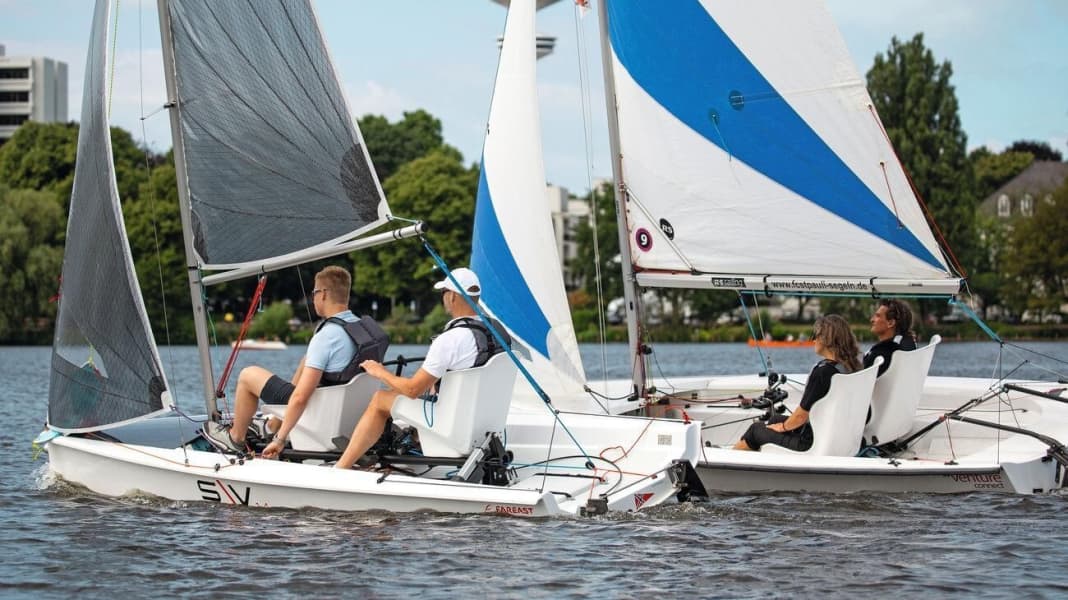
Paralympic sailing suffered a major setback in 2015: the regatta sport, which is practised by people with physical disabilities at a competitive level, was removed from the 2020 Paralympics programme; all attempts to reinstate it for 2024 have so far failed. "I was horrified and sad," says Heiko Kröger, multiple world champion and silver medallist in the Paralympic boat class 2.4 mR. But the cancellation also has positive aspects for him: "The Paralympics have created a lobby for disabled sailing, which we are now using to promote inclusive sailing."
In concrete terms, this means that disabled sailors will no longer compete against each other in isolation from the rest of the sailing community, but together with everyone else. Inclusive, in other words, included. Sailing is thus following the general social trend.
This requires boats that can also be sailed by people with disabilities. We tested two of them: the RS Venture Connect and the S/V 14. The aim was not only to find out whether these models are suitable for so-called disabled sailors, but also whether they are suitable for a much broader target group.
"Physical limitations include, for example, diminishing strength or mobility due to increasing age," says Kröger. "If you look at the demographic pyramid in clubs from this perspective, we have a high proportion of 'disabled' sailors."
So can you sail into old age with these boats? You can read the test in the current issue of YACHT 20/2020, available from 16 September at newsagents or digitally here.
RS Venture Connect vs. Far East S/V 14
